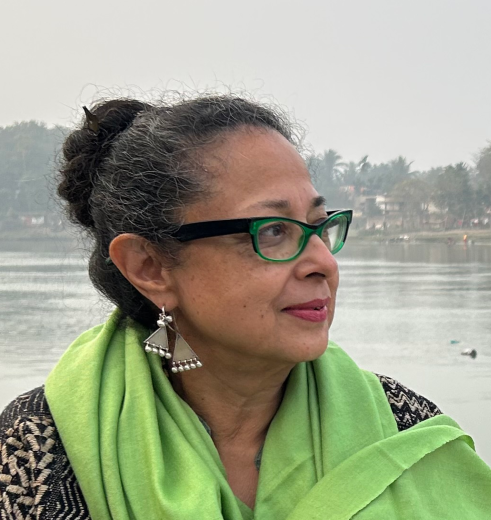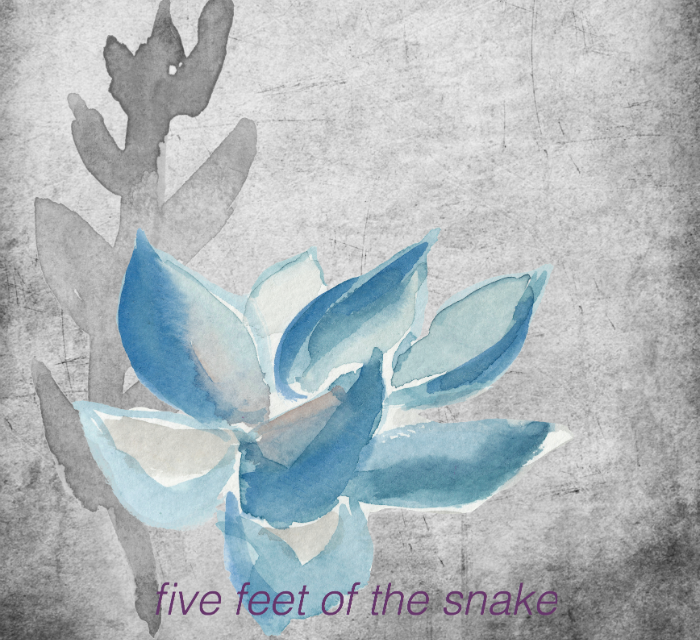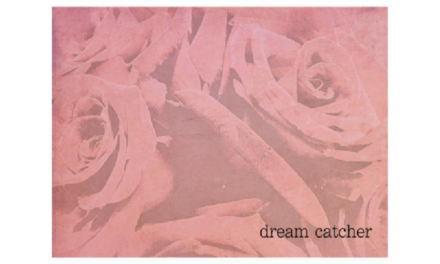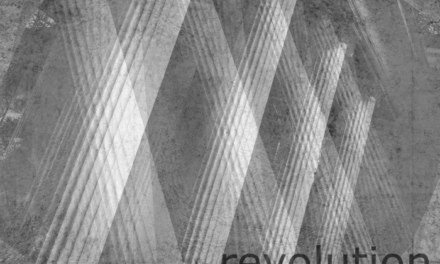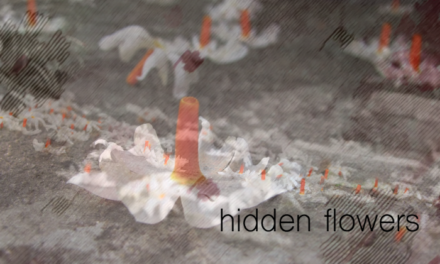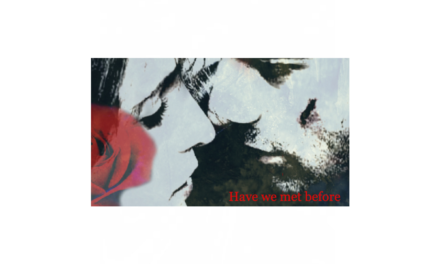“Unpalatable to the Lord of Death! Forerunner of the monkeys!! You’ve seen five feet of the snake?? Burnt face, low of birth!!”
Jomer oroochi! Bandorer ogrogonno!! Shaaper pñaach pa dekhecho?? Mukh pora, bodjaat!!
The swear words flew fast, interrupted only by indignant breaths, equally rapid.
The frail old lady’s voice got more stentorian with each word, the affront in it resounding.
“Return them this moment! Return them now, I say!” she bellowed, her small frame shaking, her chest heaving with uncontainable emotion.
The young man sitting on the edge of the covered pavilion, the “dalan” that went right around the house, his legs dangling over the side, caught the look on the face of the maid next door, who was hanging up the laundry on their first floor terrace, and grinned. She was gaping at Bor Dimma, the elderly lady who was still hurling choice expletives.
About ten feet away from Bor Dimma, to her right, a short, chubby little boy stood transfixed, as though turned to stone in mid-flight. The young man’s gaze shifted to his ten-year old cousin’s face, the poor fellow had almost made it, but alas, Bor Dimma had looked up from her magazine just as Buro was about to disappear beyond the outhouse gate.
Buro was clutching onto the chunks of raw mango he’d hastily swiped from the aluminium platter heaped with spice coated mango. The mangoes would be pickled in mustard oil later, but now they were drying in the sun, and Bor Dimma had stationed herself nearby – on the wide concrete bench by the pond – to keep an eye on them.
Even the thought of the little green wedges with the salt and turmeric and who knows what else, made Buro want to lick his lips. But Bor Dimma was yelling now. What should he do?
Bor Dimma paused for breath.
Buro blinked. He knew what was coming next, and yet every time…
“I’m very hungry, Bor Dimma! Ma forgot to give me anything before I went to play…” he blurted out, a plaintive note in his voice.
The young man felt a laugh rising in his throat. He looked sideways at the maid, she was looking terrified now. She was new.
“Aaaiiñ! What? What?? Again?! How could a mother be so forgetful! Oh Lord, what sort of daughters in law we’ve brought to our home…” Bor Dimma exclaimed, loudly.
There was no doubt that whoever was in the row of rooms along the dalan could hear her quite clearly. Buro’s mother was most likely in one of them, chatting with her sisters in law or getting things ready for the evening prayer, or something.
“Come here!” Bor Dimma commanded.
Buro shuffled up to her, a woeful expression on his round face.
As he reached the old lady, she flung out an arm and stroked his cheek. Buro looked even more sad, his lower lip trembled.
“No one fed my little grandfather?” Bor Dimma asked in a doting tone, her sparkling dark eyes brimming with tenderness.
Bor Dimma called all her great nephews “Dadu”. Though Dadu means grandfather, and she was their great aunt. This reversing of relationship was just a way of expressing affection, it helped forge stronger ties perhaps. The great nieces were called “Didu”. It’s how grandmothers and great aunts are addressed often.
Bor Dimma wasn’t the only one, all the grandparents did the same.
The young man’s grandfather was Buro’s grandfather’s elder brother. The two brothers and their wives, and their children and grandchildren lived in the family home, which had been built by their father.
The young man, Benu, was the eldest among the grandchildren. He was in college. Second year, MSc. The youngest was not even a year old.
Then there was Bor Dimma. she was Buro and Benu’s grandfathers’ sister. She had lived with them for a long, long time, ever since her husband had died, which was exactly when, no one really remembered. Bor Dimma had been married very young. Some said when she was nine years old, some said even less than that. A couple of years after the wedding, her husband died. Snake bite. Bor Dimma was eleven or twelve at the time. Her husband’s family decided they would send her off to Vrindavan to one of the ashrams for widows. Now whether this is true or not cannot be ascertained after all this time, but most people believe so.
Usually, the girl’s family has no say in such matters. Once she is married, all responsibility and right are given over to the husband and his family. That is the custom, but Benu’s grandfather, Ramani Ranjan Basu Roy, had stepped in and insisted he wanted to take his sister home.
Everyone had been shocked. There might have been disagreement from the in laws and other unpleasantness, but Ramani Babu had just been employed by the well-known and powerful barrister Susim Baran Mitter, who was said to be close to the Government in Delhi. Bor Dimma’s husband’s family hadn’t made a fuss and Bor Dimma had come home.
“Ei, burnt face, come here! Did you eat the cutlets I kept aside for you?” Bor Dimma called out to Chini as she came out from the other side of the house and made her way toward the staircase.
Burnt face… mukh puri. One of Bor Dimma’s favourite swear words. Short, sweet, thrown at you with the emotion it was meant to convey. Angrily, meanly, fiendishly, dotingly, adoringly, there were a thousand and three and a half ways of saying it. It even had gender. Mukh puri, female. Mukh pora, male.
Chini, Buro’s elder sister, had just got back from school. She was in class twelve, she spent most of her time studying, since exams were coming close and she was determined to get at least ninety-three per cent. One per cent more than Benu Da. She was tired of hearing how intelligent he was.
“No, Bor Dimma, I’ll have it later! Going for Biology tuition now,” she said without pausing in her stride.
“All this to do!” Bor Dimma grumbled.
Joto shob dhong!
“What does it matter how much a girl person will study? Tell me, will anyone tell me? Girl person and all these desires… terrible!”
Ki eshe jaye meye manush koto porey? Bol amay, keu bolbi? Meye manusher abar ichchhe ki… megeh!!
Bor Dimma started turning the pages of her magazine, her fingers shook a little.
A funny look passed through Benu’s eyes. He felt a need to get away from there. He got up abruptly and left.
Bor Dimma was calling out to the maid to get some roshogolla and shingara for Buro, even as she made him sit by her on the cold grey bench and encouraged him to start demolishing the mango he clutched in his hands.
***
The little girl sat on the bed crying softly.
She was alone. It was late afternoon, shadows filled the corners. the sarees on the rack, the “alna”, were strewn in disarray. They had not been pleated and twisted neatly yet to be hung up on the hooks.
Every now and then a sob went out of control, a whimper grew loud, and cut through the dull still air.
She tried to stop crying. It hurt her, in the throat, in the chest.
What had happened? Why was no one talking to her? She was confused. Why had her mother in law said she was not allowed to wear colourful sarees anymore? Why had they left her all by herself and gone away? She was scared. Where was everyone? She wanted her father.
A storm of tears came rushing as she thought of him. She wanted to wail, her father had died soon after she came to her “shoshur bari”, the home of her in laws. He would never place his hand on her head again, never call her “Ma”. Her heart swelled and seemed close to bursting. She clutched her chest and broke down, her body shook as she sobbed.
***
“Bor Dimma, whose picture is this?” Benu was nine, he was playing in Bor Dimma’s room that afternoon.
The picture was in a frame behind a pile of books and magazines on the table in the corner. Sunlight drifted in through the shutters, illuminating the floating specks of dust, and fell on the wall behind. It caught the edge of the metal frame. Benu saw something glint and picked it up.
The frame was tarnished and dusty. The gilt and fanciful curves and swoops looked a little subdued now. The picture within had faded, but you could see two people there quite clearly still. The girl was sitting on a finely carved chair, the man sat on its arm. She was in a saree, she had on bangles, a couple of necklaces, there were ruffles and lace on her collar, and a tiara on her head… the chains of the tiara fell languidly along her hair sweeping back, she was looking into the camera. The man was in a white suit. He had on his jacket, a neatly buttoned waist coat, a shirt and a tie, his left arm rested on the back of the chair, his right hand was on his knee. He too gazed directly at the camera.
Benu peered at the photograph and ran up to Bor Dimma, who sat on the bed reading.
“Who? Who is this, Bor Dimma?” he asked again.
“Ah, death of me! Won’t let me read in peace this naughty boy!” snapped Bor Dimma.
Molo jah! Shanti te porte debe na dushtu chheleta!
Benu smiled at her happily. Bor Dimma always talked like that.
“Who’s that?” Bor Dimma took a closer look at the picture, made a face and said, “Who’s that! Why that’s me, of course… and your Bor Dadu!”
“You? How can that be, Bor Dimma? You don’t have hair!” Benu retorted instantly.
The girl in the picture had a thick long plait that hung all the way down, almost up to her knee. The photographer had carefully placed the end of the plait on her knee in fact, so it wouldn’t dangle on the side, spoiling the composition.
Benu was looking at Bor Dimma’s head, she had always had very short hair, almost like a boy’s. Even his hair was a bit longer, you could make a parting at least.
Bor Dimma took another look at the photograph, and grimaced.
“Ooh! That silly long hair, you couldn’t even make a bun, it was so heavy… who needs it… better than that is my bowl cut… and no fear of lice too!” she said with a shrug, running her fingers through her closely cropped, spiky, grey hair, and chuckling.
“Baati chhant” or “bowl cut”, that’s what they called the smooth hair cut without any contours or style. The way hair would look once it started growing back a few days after you’d shaved your head, bristly and short, a little angry even, that’s how Bor Dimma’s hair looked. Always.
Benu laughed back at her, and said, “Yes! Chini has lice! Chini has lice! Ma has said not to go near her then I’ll get it too!”
“What are you reading, Bor Dimma?” he asked, now fascinated with the cover of the book in her hand.
“Tess of the d’Urbervilles by Thomas Hardy,” replied Bor Dimma in English. She had a crisp, clear way of saying the words. Benu went back to the table and selected a magazine after looking at a few carefully.
Then he scrambled up on the bed and declared, “I will also read with you, Bor Dimma!”
“My golden burnt face, you’ll read Newsweek? Half the time even I can’t understand what they’re saying!” Bor Dimma said smiling and shaking her head, “Never mind, read… read… in this family they don’t read enough! The daughters in law are all B.A., M.A. pass, but who reads? Fools like cows all! Gomukkhu shob! Whole day gossip, then movies, and only read worthless plays and novels… read, my sweet burnt face, read!”
“Bor Dimma, do you ever want to wear sarees like you are wearing in that picture? You would look nice!” Benu said, his voice lilting, as he pretended to be engrossed in reading, his brow furrowed like his great aunt’s.
“Pretty… hooonh! Girl person and all these desires… chheeh! Widows wear a length of plain white cloth, that’s the correct observance, and doing the correct observance is important, Dadu!” Bor Dimma answered distractedly, Tess had just told her husband everything, and though Bor Dimma knew the story well, she loved to read these chapters, every time she found something new to absorb her. Today, the “impish” fire and the “idly” grinning fender had her entranced.
“Why can’t girl person have desires?” asked a little voice.
Bor Dimma turned a page.
***
Hair could make so much noise when it was being cut?
The little girl was surprised as she heard intently. Her hair had never been cut so close to her head, her ears, before.
They’d opened her two long plaits and started chopping off the tresses almost from where they started, she felt the cold edge of the scissors on her neck, pressing in, releasing, in again.
Khutch! Khutch! Khutch!
She could hear the scrunch as the blades caught her locks, and kept cutting, cutting…
“Didimoni has so much hair!” her sister in law howled. She was a few years older but the little girl had been the wife of her elder brother, she was older in status, so she called her Didi… elder sister.
The women began to sniffle.
Tears streamed down the little girl’s face but she was busy listening to her hair, she didn’t notice.
***
“Ei je, all you most ugly ones, don’t pretend to be so busy, no need to show how hard you work, understand?”
Ei je, kuchhiter dhadi shob! Byasto hobar bhan korish ne! Oto kaaj dekhabar dokkar nei, bujhli?!
Bor Dimma hobbled into the large hall where Benu’s mother and aunts were preparing all the things needed for the many ceremonies of the wedding. The priest had given a long list, so had the great aunts and grandmothers consulted for the various social customs and rituals, and everyone was very particular about the observances.
“… C’mon eat!! Eat these kamala bhog now, they’re fresh!” Bor Dimma ordered, stuffing hot, sweet, tender kamala bhogs into their mouths. She’d got a bowl full of the orange flavoured delicacy from the confectioners hired especially for the occasion.
“You must be hungry! No one would care if you died, understand!” she gave a cackling laugh and pinched Buro’s mother’s cheek, “So, eat!”
Bor Dimma used the same informal form of address for the daughters in law as she did for the daughters of the family. It was always the more affectionate and familiar “tui” not “tumi”. She was the only one who did that.
Benu came in just then carrying a large stack of banana leaves and another of betel nut leaves.
“Dadu!” Bor Dimma’s face was wreathed in smiles as her eyes fell on him.
She held a kamala bhog out to him and beckoned, “Take, take, you bridegroom fellow! My big burnt face, you who’ll burn my face!”
Bor Dimma had decided somewhere along the way, that Benu, her eldest great nephew would do the duty of the eldest son by her, and, when she died, perform the ceremony of “Mukhagni” at the cremation. He’d put the first lick of fire on her, on her face as was the custom… that’s what she wanted.
Buro walked in bearing bundles of cloth and several coconuts.
“What if I burnt your face, Bor Dimma?? Will you give me kamala bhog then?” he asked with a grin.
“Buro! Stop talking nonsense!” his mother admonished sharply.
“Aha, why are you being like that?! Don’t scold, don’t scold, the poor stupid boy!” Bor Dimma interrupted. Ahammok had never sounded more loving.
***
For some reason, Bor Dimma was in Benu’s mind this evening. He sat in his study, surrounded by books and papers. The shelves were lined with tomes, hard bound, paperbacks, new, tattered, not always neatly stacked. Books and magazines sat on his desk, in the magazine rack, on the little tables that had to be added every now and then to accommodate the ever growing collection. His wife was fed up. She couldn’t bear untidy spaces.
Benu sighed and again Bor Dimma seemed to call him mukh pora.
When his Dadu had brought Bor Dimma back to her maternal home, he had also done another thing not expected of him. He had decided she would study, and not only that, she’d learn English, also music… piano. He had asked his wife and his youngest sibling, who was still unmarried, to join the classes as well. A Miss Jenny Rozario was hired as their tutor.
Benu’s grandmother had refused to study after struggling with lessons for a couple of months. Bor Dimma’s youngest sister had got married within the year. So it was only Bor Dimma who had learned with Miss Jenny. Ma’am, that’s what she liked to be called, Bor Dimma used to say.
He had not been able to fly back from Canada, where he was studying for his PhD, when Bor Dimma had left them. Buro had done the Mukhagni. It hadn’t mattered then. Today, somehow, it did.
When Bor Dimma was about sixteen years old, the elders of the family had insisted her lessons had to stop. She was a widow, this was not right. Benu’s Dadu had tried to argue with them, but they were not to be denied. If one had to live in society, one had to abide by its norms. Otherwise, one would be ostracized. How could he bring such trouble upon the family, the elders had asked Benu’s Dadu.
Ramani Babu had still held strong. But finally, Bor Dimma, knowing how difficult things were for her Dada, had come to him and said, she was now done with studying. Anyway, she had learnt a lot and it felt a little uncomfortable being more knowledgeable than even his wife. After all, she was her elder, since she was married to her Dada.
His mind wandered to that afternoon in Bor Dimma’s room when she had read Tess and he had stared blankly at Newsweek. Strange how some memories stay precisely etched. Had she bought those books and magazines? Or did someone give them to her? Benu frowned. He’d never thought to ask. Maybe his father and uncle and aunts kept Bor Dimma supplied with them?
Tilottama had said she was not going to pursue a career in academics. She was not interested in doing her Masters in Economics. She wanted to change her subject, her life.
Tilottama was his daughter.
She was brilliant really, had topped her honours course. Sometimes she reminded him of Chini, she had the same drive and focus.
But now she had changed her mind. She said, she realised that all along what had really made her happy was design. She wanted to study design. She was willing to let three years of her life go to waste and start all over again. That wasn’t all.
He had struggled with the whole thing but had tried to give it some shape, some structure… if he could. His wife had been too angry, she kept saying they’d really spoilt their children. This sense of entitlement, how could anyone tolerate it? Benu had asked Tilottama if she was thinking of Parsons or Rhode Island or one of the other top ranking design institutes.
That’s when she’d said, it was not just design, there was something else.
She wanted to spend time in India. She had applied to a couple of institutes. National Institute of Design, Ahmedabad was hard to get into, but there were other schools…
Benu sat looking at the books, not seeing anything.
“Meye manusher abar ichchhe ki… megeh!” said Bor Dimma.
Girl person and all these desires… terrible!
Benu wondered if Bor Dimma ever thought of being Tess. Or Juliet? Or Chitrangada? Or maybe Chandramukhi? Or something else, someone else altogether? Do we have many selves in us, he wondered. Is that what makes being who we are bearable? Feasible?
He’d never thought about Bor Dimma’s life as such. She was a given. Always there. And then gone. Just like that. No one to call him ahammok, jomer oroochi, bandorer ogrogonno, mukh pora any more.
No one to hurl, “Shaaper pñaanh pa dekhecho??!”
Seen five feet of the snake?!!
No, he’d never thought of her life, yet something always bothered him when she said those words.
Not the swearing and cussing. no.
That… meye manusher abar ichchhe ki… what’s all this about a girl person having desires? It had always bothered him. Why… why did she say that?
Suddenly, he fervently hoped Tilottama would get into the National Institute of Design, Ahmedabad. Yes, she was so bright, she surely would. A film of tears came and blurred his vision.
……………………………………………………………………………………………………………………………………………
Yes, there was someone like Bor Dimma in that old house. She didn’t live there, she used to visit. “Bor Dimma” is a colloquial version of “Boro Didima” or “elder/big maternal grandmother”. We often call our great aunts (on both sides) Dimma too, not just grandmothers. Many Bengali words in the story, most of these I have translated. “Dada” or “X Da” is how one addresses brothers and cousins who’re older, and “Didi” is for older sisters and cousins. Dada and Didi may be used for the in laws of one’s own generation, like sisters in law and brothers in law, etc. Roshogolla is the Bengali sweetmeat, which has endless stories and memories stored in it, Shingara is the Bengali samosa. It’s not as big as a samosa, crisp and flaky, stuffed with potato or potato, cauliflower, and peas in the winter. You also have shingara with minced meat… “pñathar mangsho”, ie, goat meat. I love Kamala Bhog, the pale saffron, headily orange flavoured cousin of the sweet juicy roshogolla. As I wrote this story I remembered a lady who used to let loose a fine stream of swear words when irate, or even not.
………………………………..
